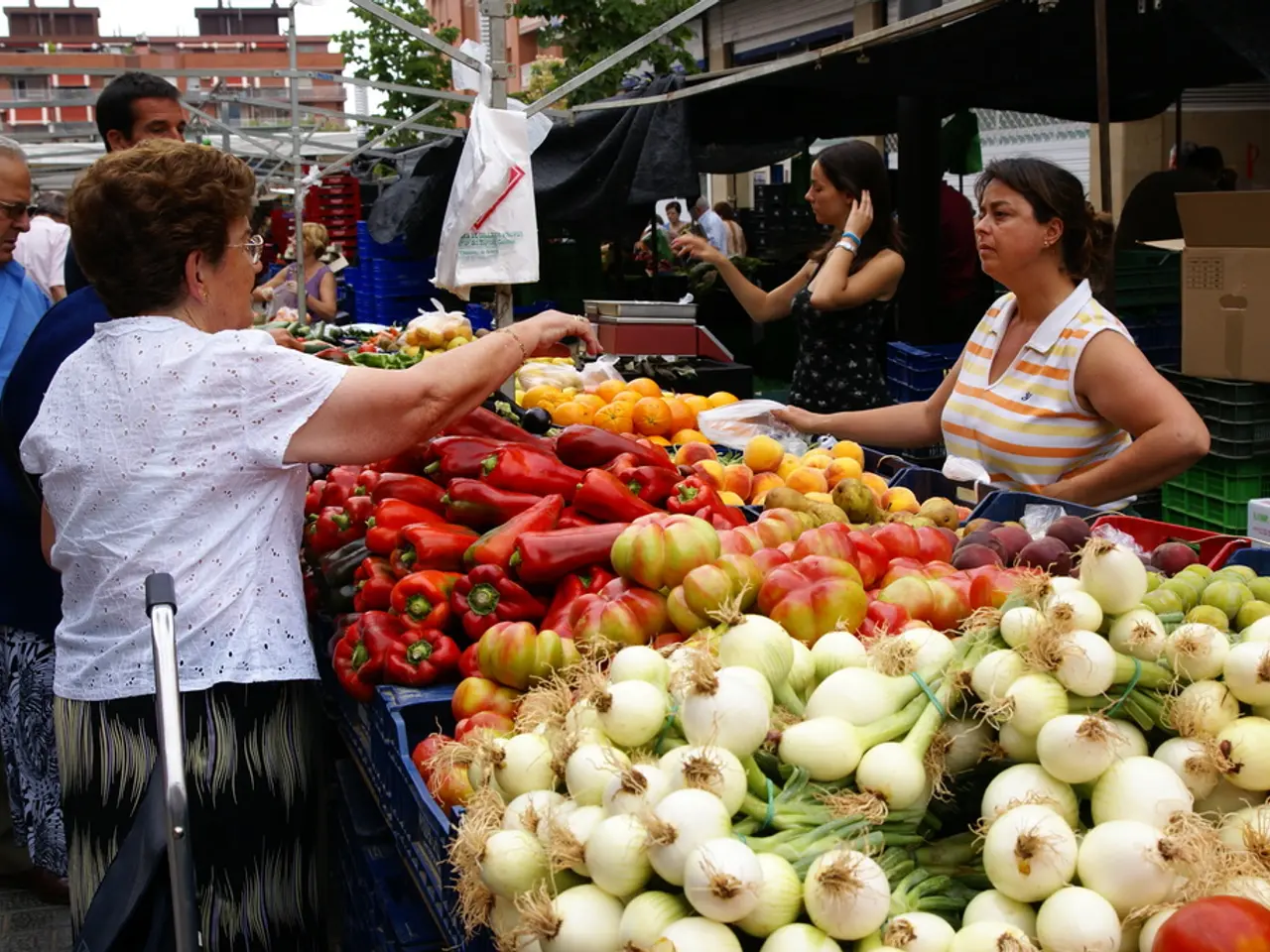International Discussion on Plastic Waste: Negotiating a Treaty at the Geneva Summit Among 180 Countries
In the heart of Geneva, Switzerland, representatives from nearly 180 countries are gathering under the auspices of the United Nations, aiming to forge a global treaty aimed at reducing plastic pollution. The treaty, which has been under discussion for three years, is being chaired by Ecuadorian diplomat Luis Vayas Valdivieso.
The key issues and arguments in these ongoing negotiations centre on finalising a legally binding international instrument that addresses the full lifecycle of plastics—from design and production to disposal. The treaty aims to reduce plastic pollution worldwide by setting enforceable rules on production, consumption, and waste management.
The negotiations have highlighted several critical points. One of the most contentious issues is the inclusion in the treaty of a limit on the production of new plastics. A report published in the medical journal The Lancet states that plastic causes diseases and deaths from childhood to old age, and is responsible for health-related economic losses exceeding $1,500 billion (around €1,300 billion) per year.
The battle is far from won, as the last negotiation session ended in a resounding failure in Busan, South Korea, in late 2024. Oil-producing countries like Saudi Arabia, Iran, and Russia strongly oppose this limit on new plastic production.
However, optimism is not entirely lost. Inger Andersen, the executive director of the United Nations Environment Programme (UNEP), has expressed optimism about the negotiations, stating that most countries are coming to Geneva to find an agreement. A group of 96 countries, including France, called at the UN conference on oceans in June for an "ambitious" treaty on plastic pollution.
The negotiations face challenges from disagreements among countries and lobbying by industry representatives, leading to stalled negotiations and gridlock in some sessions. This reflects tensions over how to balance economic interests with environmental and health imperatives.
Despite these challenges, delegates from 179 countries, supported by scientists, environmentalists, and industry, are working intensively to finalise the treaty text during the August 5-14, 2025 sessions in Geneva, with the goal of having a robust treaty that can be adopted soon.
Luis Vayas Valdivieso has assured that non-governmental organisations and civil society will have access to contact groups where the most contentious points of the text are negotiated. Greenpeace is among the NGOs putting pressure on governments to act in the interest of people, not polluters, during the final negotiation.
The current negotiations for a global treaty on plastic pollution are under the auspices of the UN and are being chaired by Ecuadorian diplomat Luis Vayas Valdivieso. Time is running out, and the urgency of the situation is being emphasized by the diplomat, who has warned that the legally binding text for States will not happen automatically.
Each year, around 460 million tonnes of plastic are produced worldwide, half of which is single-use. OCDE projections published in 2023 suggest that global plastic consumption could triple by 2060 without progress. Less than 10% of plastic waste is recycled, leading to significant environmental contamination of land, freshwater, and marine habitats.
The signatories of this text, which represents more than half of the 180 countries involved in the negotiations, called for a global target to reduce the production and consumption of primary plastic polymers to sustainable levels. The negotiations in Geneva are a crucial step towards a sustainable future, where the full lifecycle of plastics is considered, and enforceable rules are set to reduce plastic pollution worldwide.
- The global treaty on plastic pollution under discussion at the United Nations aims to reduce plastic pollution worldwide by setting enforceable rules on the full lifecycle of plastics, including production, consumption, and waste management, which is crucial for the health and wellness of people due to medical-conditions associated with plastic consumption and pollution.
- The diplomat chairing the negotiations, Luis Vayas Valdivieso, has emphasized the urgency of the situation, as each year, around 460 million tonnes of plastic are produced worldwide, half of which is single-use, leading to significant environmental contamination and climate-change effects.
- The successful signing of this treaty in Geneva will mark a significant milestone in environmental-science efforts to address the pressing issue of plastic pollution, as the negotiations involve representation from scientists, environmentalists, industry, and 179 countries, with the goal of adopting a robust treaty that reduces plastic production and consumption to sustainable levels.








